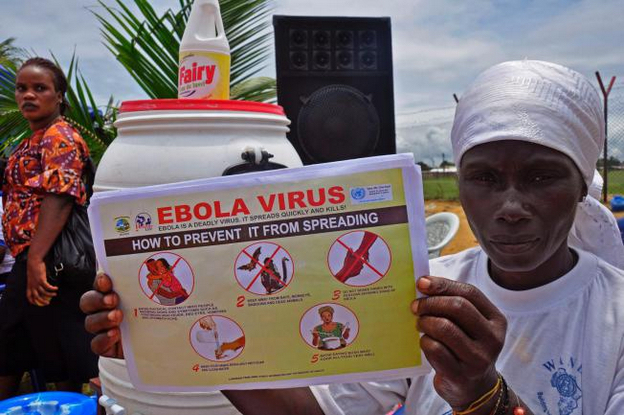![While Amgen and other companies work on cures and treatments for the disease, the best current way to prevent Ebola is to contain its spread. [AP file photo]](http://www.jstudentboard.com/reporter/wp-content/uploads/2014/11/JSR_Nov01_EbolaCure-300x199.jpg)
Ebola has affected nearly 10,000 people throughout Guinea, Sierra Leone, and Liberia and has been transmitted to health care workers in countries around the world. During this outbreak, ZMapp has been used to treat seven individuals – three Liberians and the rest, healthcare workers and a priest who contracted the virus while working in Liberia. However, Mapp Biopharmaceutical Inc. reported in August that their supply of ZMapp had been exhausted.
Amgen Inc. has responded to the crisis by opting to grow the three antibodies necessary to produce ZMapp in Chinese hamster ovary (CHO) cells. Such method of production of the antibodies is unlike the method used by Mapp Biopharmaceutical Inc., the creators of ZMapp, which produces the drug by extracting three types of antibodies from mice injected with the Ebola virus and growing them in an indigenous Australian tobacco plant.
However, the use of CHO cells is promising, as they have already been proven to be useful in producing treatment for rheumatoid arthritis as well as anemia.
“While offering a slower route than plant production, the infrastructure for manufacturing in CHO cells is well established, which means the potential scale of drug production is greater than the production capacity of existing Plant-made pharmaceutical (PMP) facilities,” Mapp Biopharmaceutical Inc. said in a released statement.
The Bill and Melinda Gates Foundation has contributed to the effort by giving a $150,000 grant to Mapp Biopharmaceutical Inc. of San Diego. The grant will be used towards harnessing more traditional methods to growing the necessary antibodies, such as the use of the CHO cells by Amgen.
Kristen Davis, an Amgen spokeswoman, said that 12 to 14 staff members will be designated to develop techniques for manufacturing ZMapp in larger doses using antibodies grown in the cells.
“It’s a simple market principle: the more demand there is for a product, the greater the need for a better solution to the production process,” said Dong Ho Kim, the CEO of Genolution Pharmaceuticals, Inc., in an interview with JSR. “The priority of the pharmaceutical companies should be to develop ways for efficient large-scale manufacturing of the drug.”
Yet, another controversy has arisen because the first doses of ZMapp were distributed to Americans and not to African doctors or nurses.
“The decision to offer them the experimental treatment — while dozens of African doctors and nurses have perished — has provoked outrage, feeding into African perceptions of Western insensitivity and arrogance,” said the Los Angeles Times.
However, Kim offered a different perspective during his interview with JSR.
“There is no doubt that health care workers [with Ebola] should receive the drug first,” he said. “Regardless of whether it was Americans or Africans who received the first dose, it only goes to illustrate the progress the scientific community has been making.”

